I’m back today with Round Two of this month’s book reviews. These reviews are quite lengthy, so let’s dive right in.
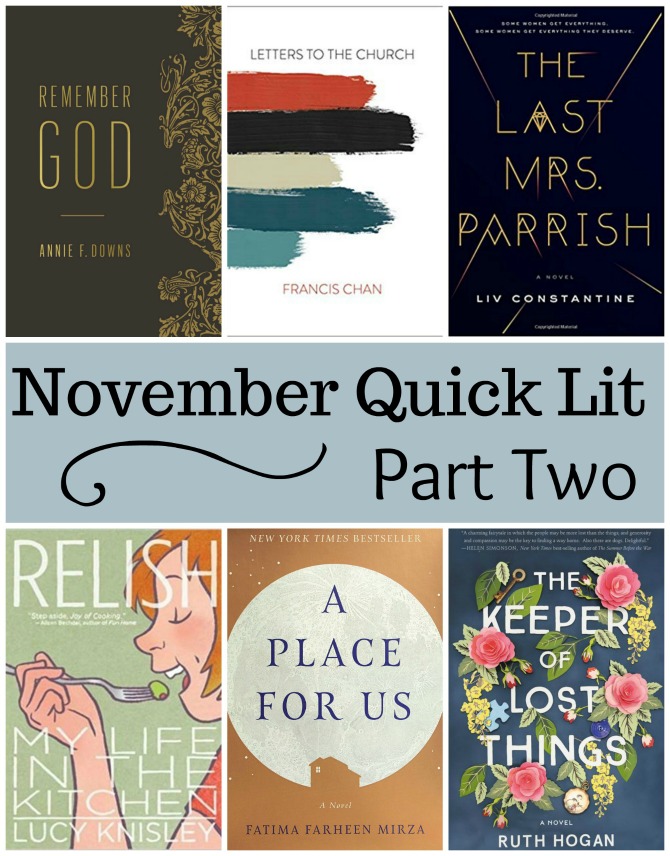
Letters to the Church, by Francis Chan: Though I’ve been familiar with Francis Chan for a while, I’d never read any of his books before this one. Since I’ve been on a Christian author kick, I wanted to read something from this well-known pastor; the title and the cover of Letters to the Church (Chan’s most recent title) both stood out to me, so I thought it would be a good place to start.
This book is powerful and will no doubt ruffle some feathers. Chan, formerly a megachurch pastor, calls into question our current church model. The church was intended by God to be a radical and intimate gathering of believers, yet today it is little more than a weekly diversion where we are entertained and touch base with friends. Chan believes that church leaders (himself included) have lost sight of the mystery of the church. In this collection of letters, he addresses separate areas where the Church is lacking and in need of reformation.
Chan strikes just the right tone with this book: though he doesn’t shy away from difficult truths, his words are infused with empathy and humility as well as liberal doses of humor. He effortlessly blends Biblical examples with stories from his own church experiences, and he is unafraid to own up to his own mistakes while also shining light on how God has redeemed them. This is a stern call to action for all Bible-believing Christians, yet there is no shaming or anger, only genuine concern.
It’s been a while since I have felt so convicted by a book. As a member of a rapidly growing “seeker friendly” church, this book challenged me to question my support of this model. Through much of the book I was frustrated, as I felt Chan’s words were directed only to pastors and other official church leaders—I was seeing a problem, but had no way to fix it. Chan eventually disabused me of this notion: this is not an issue to be solved by church staff, but by the entire Church body, including me. He offers specific ideas for bring about change, many of which I will personally be praying about as I move forward in my own Faith/Church journey.
My Rating: 4.5 stars.
The Last Mrs. Parrish, by Liv Constantine: Amber Patterson is tired of being “less than.” She believes she deserves more—more money, more recognition, more pampering, more designer clothes and gifts from a doting husband. She has her sights set on the life of Daphne Parrish, a socialite and philanthropist married to a real-estate mogul named Jackson. Jackson and Daphne have a stunning home and more money than they know what to do with, and Amber is determined to make it hers. Using a fabricated connection of sisters who died from the same disease, Amber unscrupulously needles her way into Daphne’s life. Once she’s become Daphne’s closest confidant, she begins undermining her in order to usurp the title of Mrs. Jackson Parrish.
This is a difficult book to rate. On the one hand, I found it compulsively readable: I raced through the first half to determine what was going on (I suspected all was not as it seemed with these characters, and I was right), and I found the second half (which involves a key plot twist and perspective shift) even more compelling. The lavish descriptions of the Parrish’s plush lifestyle are also quite delicious. And though the ending was a little too convenient, it was extremely satisfying.
That said, the writing here is extremely amateurish, almost laughably so; I honestly couldn’t believe that some of the poorly constructed sentences in this book were allowed to go to print. I found many of the more gruesome aspects of the book to be over the top; in a way this made them more palatable, but they felt overwrought and emotionally manipulative. (I don’t want to spoil the plot, but if you’ve read the book, I’m referring to the mistreatment of the protagonist in the book’s second half.) I also could have done without the trashy sex scenes, though they are less gratuitous than they could have been, and do serve to further the story.
Ultimately, this book receives full marks from me for creativity and plot, but I was extremely disappointed in the poorly drawn characters and lackluster prose. This book has two authors (Liv Constantine is the pen name for authors and sisters Lynn and Valerie Constantine) and I wonder if that played a factor in the poor construction of the novel.
My Rating: 3.5 stars.
Remember God, by Annie F. Downs: Annie F. Downs and I have become good friends in this past year. She doesn’t know it—at least she didn’t until I unashamedly told her we were virtual BFFs when I met her in person last month(!)—but through her books, podcasts, and social media posts I’ve grown invested in her story and the ways she is being used by God. In Remember God, Annie shares candidly of her deepest pains and hardest lessons, offering readers an intimate view behind the scenes of the happy-go-lucky Annie we all love.
The book begins at the start of a calendar year (2016), when Annie believes she has heard God promise her that this year will be one filled with hope and love. Annie is in her late thirties and single, and her heart’s desire is for marriage and children; not surprisingly, she interpreted the message to mean that this would be the year she would find romantic love. But as the year unfolds, Annie faces one heartbreak after another—some within her dating life, others personally and professionally. During a time when Annie had specifically asked God to reveal His kindness to her, Annie begins to doubt whether God really is who he says He is. How can a kind, loving God make such promises, only to string her emotions along in this way? Throughout the book Annie wrestles with God as she struggles to discern God’s character and, more specifically, His place in her life.
Heartbreakingly, this story does not end well. (This isn’t giving anything away, Annie is open about this in all of the interviews she’s done for the book.) However, the year was redeemed in some beautiful ways. Annie finds hope within her suffering, and in her obedience to the Lord she discovers that, even though His blessings do not look like the blessings she had hoped to receive, HE is still good. She developed a heavy limp as a result of her hard year, but rather than resenting God for allowing her to suffer, she begins to view the limp itself as a blessing.
I loved this book. Yes, partially because I love Annie, but also because it was refreshing to see someone be SO vulnerable and raw—which is something that’s becoming more popular these days, but Annie’s realness here takes brutal authenticity to a whole new level. Hers is a story without a tidy bow, and she shows us that that’s okay, and that it doesn’t detract from God’s goodness . . . nor does her persistent doubt and longing.
Despite the pain in this book (I shed many tears reading it), it is ridiculously funny. Because Annie Downs is one funny gal, and I think it would be impossible for her to write anything that didn’t have her readers rolling in laughter. Her writing is transparent, conversational, and brings you right into her story in the most welcoming way. Annie is able to blend the sacred and secular in her writing, probably because it is just an outpouring of her own life, which obviously includes both. I loved being invited into Annie’s world, and was inspired by the ways Annie lives out her faith, how her prayer life and her social life and her writing are all one, and how she isn’t afraid to share any of those parts with her audience—all for the purpose of pointing us back to God.
This would be a fantastic read for someone in a similar life stage to Annie (longing for something different), but it speaks to anyone who has struggled to trust God in the midst of personal suffering.
I read the paperback version of this book (special, because it was signed for me by the author), but I also listened to the audio while I read. Annie’s reading is fun (and diverts from the text quite often, which was something fun I wouldn’t have noticed if I’d only read one version at a time). If you know Annie through her podcast, you’ll want to listen to the audio. Her emotion comes through in the real tears she cries as she reads, and the conversational tone of her reading is a delight.
My Rating: 4.5 stars.
The Keeper of Lost Things, by Ruth Hogan: I’ll admit, I’m totally guilty of choosing this book for its gorgeous cover! But the story intrigued me too. Forty years ago, Anthony Peardew lost a precious keepsake from his fiancé, who died unexpectedly that same day. Since then Anthony, an author, has collected lost items that inspire the short stories that he writes. Anthony hopes to reunite each lost item with its owner, and when he dies, he passes his life’s mission to his housekeeper, Laura, a middle-aged divorcée who has become a bit lost herself. With the help of Sunshine (a sweet neighbor girl who has Down’s Syndrome) and Freddy (the ruggedly handsome gardener), Laura begins the work of fulfilling Anthony’s last wishes. Threaded into the narrative is the flashback story of Eunice, whose life connects with Anthony’s in some unexpected ways.
This is an endearing story that incorporates some of my favorite themes: the kindness of neighbors; the interplay between past and present; the value and memories held within objects; the redemption of broken stories. I loved the British sensibility, and the elements of magical realism added a nice touch.
The primary storyline about Laura (specifically her relationships with Freddy and Sunshine) was my favorite, but the additional stories were also engaging. Unfortunately there was so much going on that I got a bit lost (this might have been different if I wasn’t listening to the audiobook), and I had a hard time fully engaging with each plot line. What could have been a great book was, for me, just a good one. But I’d love to read more from this author; her writing style is along the lines of other writers I enjoy, and she clearly has a knack for telling captivating, sweet stories.
My Rating: 3.5 stars.
Relish: My Life in the Kitchen, by Lucy Knisley: This is the second graphic novel I’ve read this year (actually my second graphic novel EVER), and nobody is more surprised by that than me. In reading my first graphic novel for my reading challenge a few months ago, I discovered I actually liked the medium and wanted to read more. Relish came highly recommended so it was an easy pick. I tend to enjoy food writing, especially the type that connects food to life, and that’s exactly what this is.
Lucy Knisley is the daughter of a chef and gourmet, and her upbringing fostered a food passion of her own. In this illustrated memoir, Knisley traces key episodes from her life, framed by what she was eating and the lessons she learned through each gastronomic experience. There are stories of her childhood in New York assisting in her mom’s catering gigs, and chapters about her years working foodie jobs to pay for art school in Chicago. The stories feature family and friends, childhood embarrassing moments and adolescent discoveries. Each chapter ends with an illustrated recipe related to the story shared in that part of the book.
This book is funny and down-to-earth and had me wishing I could draw so that I, too, could write my own graphic memoir! Knisley’s love for her family shines through the pages, as does her enthusiasm for food. I admired her self-awareness and healthy relationship towards food: she appreciates fine cuisine, but is also comfortable eating fast food and “junk” on occasion. I would describe her as a “realistic foodie.” Our culture has gotten so weird in our ideas about food—either worshipping or demonizing it—so this attitude was refreshing. Her reflections on growing up are interesting, too; she had a unique childhood, yet many of her experiences and emotions were those felt by all children and teens.
The graphic format is perfect for this book: the illustrations correspond well to the text and make for a very enjoyable read. This book follows more of a pictures-with-commentary format, as opposed to the dialogue-heavy style present in the last graphic novel I read, but it works well. After reading my first graphic novel I commented on how amazed I was that an author could convey so much information through comic illustrations, and I felt the same way here. In one chapter about leaving childhood behind, Knisley includes some racier illustrations that I could have done without, but these were only a very small part of the book; as a whole the images are wonderful.
At the end of the book, Knisley includes a few photographs from her childhood. I loved this section, which would have been a welcome addition to any memoir but worked especially well with a graphic novel because I could compare and contrast the illustrations with the photos.
My Rating: 4 stars.
A Place for Us, by Fatima Farheen Mirza: This sweeping story of an Indian-American Muslim family opens with the wedding of Hadia, the eldest daughter. Her estranged younger brother, Amar, has returned to the family for the first time in three years in order to celebrate his sister’s marriage—a match made of love, not tradition. With Amar’s return, his parents Rafiq and Layla must reckon with their past decisions that led to the fracture within their family. Through a series of flashbacks, and through the eyes of multiple characters, we watch the family from its inception. We see the joyful moments that drew them together, and the hurts and misunderstandings that ultimately wrenched them apart.
This was not a book I would have chosen for myself (I picked it up based on many recommendations from trusted readers), and it was a slow start for me. The writing is simple and the story is not fast paced; I was initially confused by the fluid timeline and evolving points of view, and the culture and religious terminology required some patience on my part. But I persevered: since this book came highly recommended, I was determined to discover for myself why it is loved by so many. Before long I, too, had fallen hard for this book. This is an astonishing debut novel (the author is not yet 30!) that explores themes of family, faith, and what it means to make peace with one’s culture and identity. As the story progresses, we follow this endearing yet believably flawed family through the challenges of addiction, loss, sibling rivalry, unrequited love, grief, and cultural misunderstanding. Mirza imbues seemingly inconsequential moments and snatches of conversation with deep meaning, showing them to at once be unique and universal. Eventually the pieces come together to form the shape of a family and of a novel that is prosaic and also astounding.
The aspect of this novel that was initially a stumbling block for me—the shifts in time and perspective—ultimately became my favorite part. As we move back and forth in time, and between characters, each scene takes on new significance. We understand the motivations behind actions that had at first seemed harsh or insincere; empathy replaces judgment as the whole picture unfolds. This is especially the case with the tear-jerker final chapters, in which we experience the story through the father’s eyes. I was moved to tears by his attempts at reconciling his faith with his love for his wayward son.
This year I have made an effort to read more diverse selections featuring individuals whose experiences are unlike my own. This story of a Muslim Immigrant family fits the bill. Yet I was surprised by how much I related to their experiences. Our faiths, family histories, and cultural identities are extremely different, yet I resonated with their emotions, challenges, and fears. I love when literature not only opens our eyes to different perspectives, but also shows us how united we all are in our humanity.
This book won’t be for everyone, but if you’re a patient reader looking for a complex and poignant read, you’ll love this.
My Rating: 5 stars!
I’m linking up with Modern Mrs. Darcy to share what we’re reading this month. If you’re here from the link-up, thanks for stopping by. I hope you’ll stick around and maybe say hi! You can read part one of this month’s book reviews here.
And check back here Friday when I’ll be sharing my final six book reviews for the month, including my thoughts on three powerful memoirs, a YA historical book, and two literary novels.
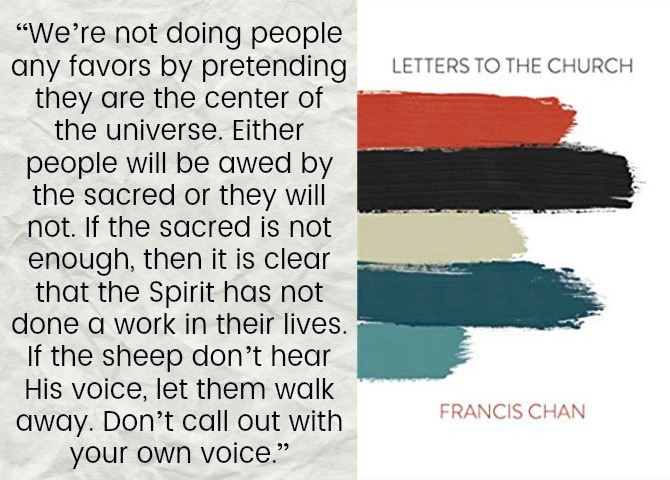
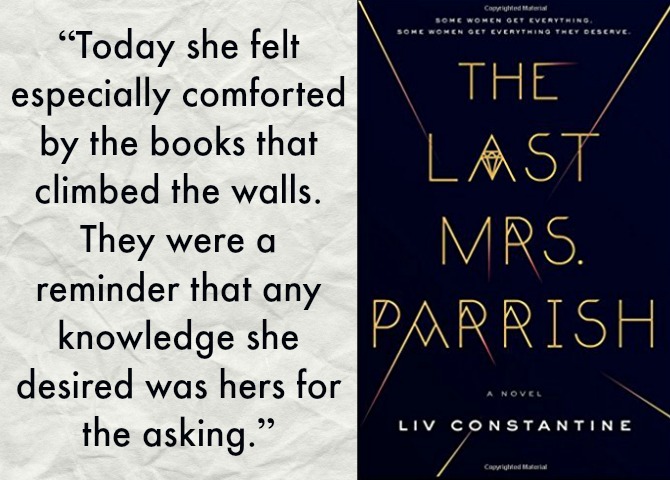
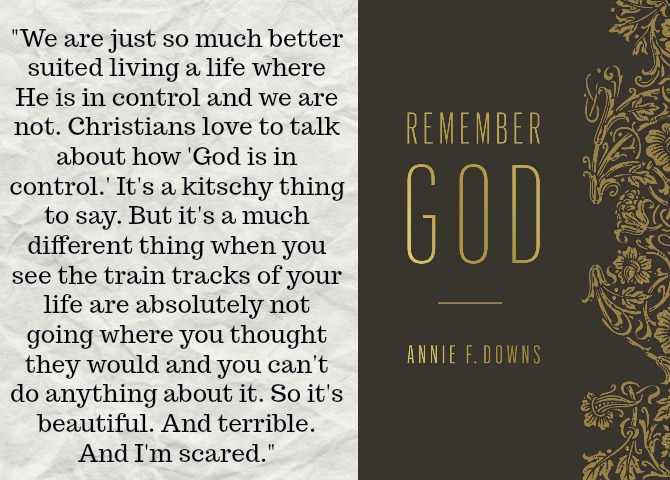
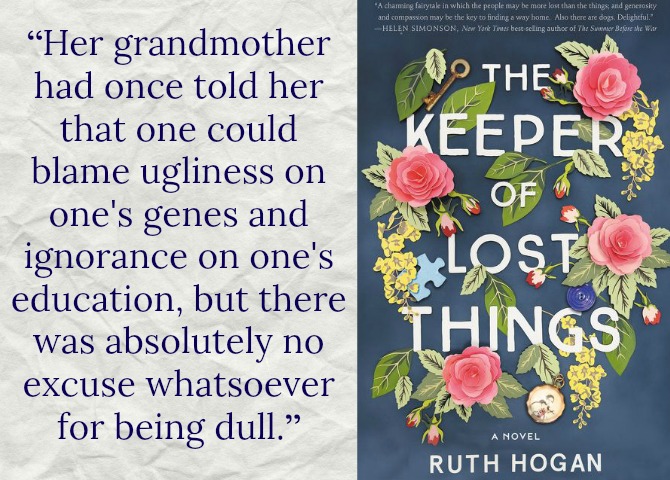
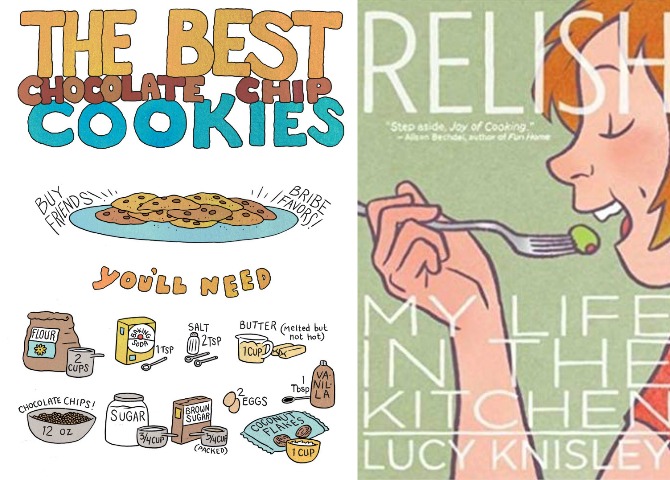
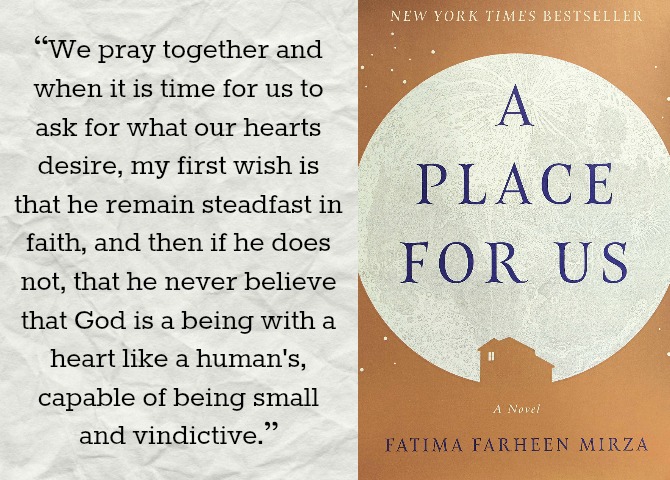
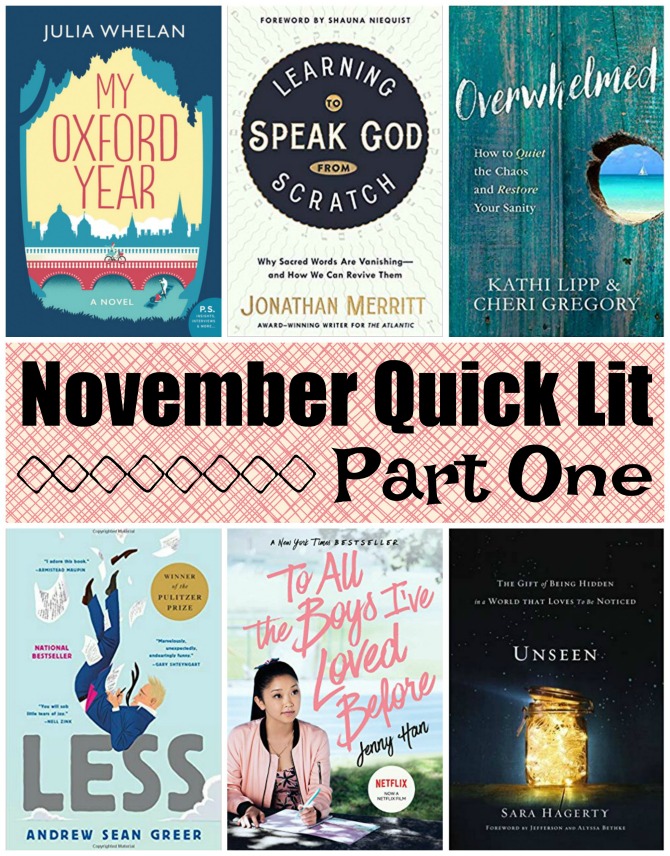
[…] A Place for Us, by Fatima Farheen Mirza ~ I am so glad I took a risk with this debut novel about a Muslim family. Beautifully written, and amazingly relatable. (Review) […]